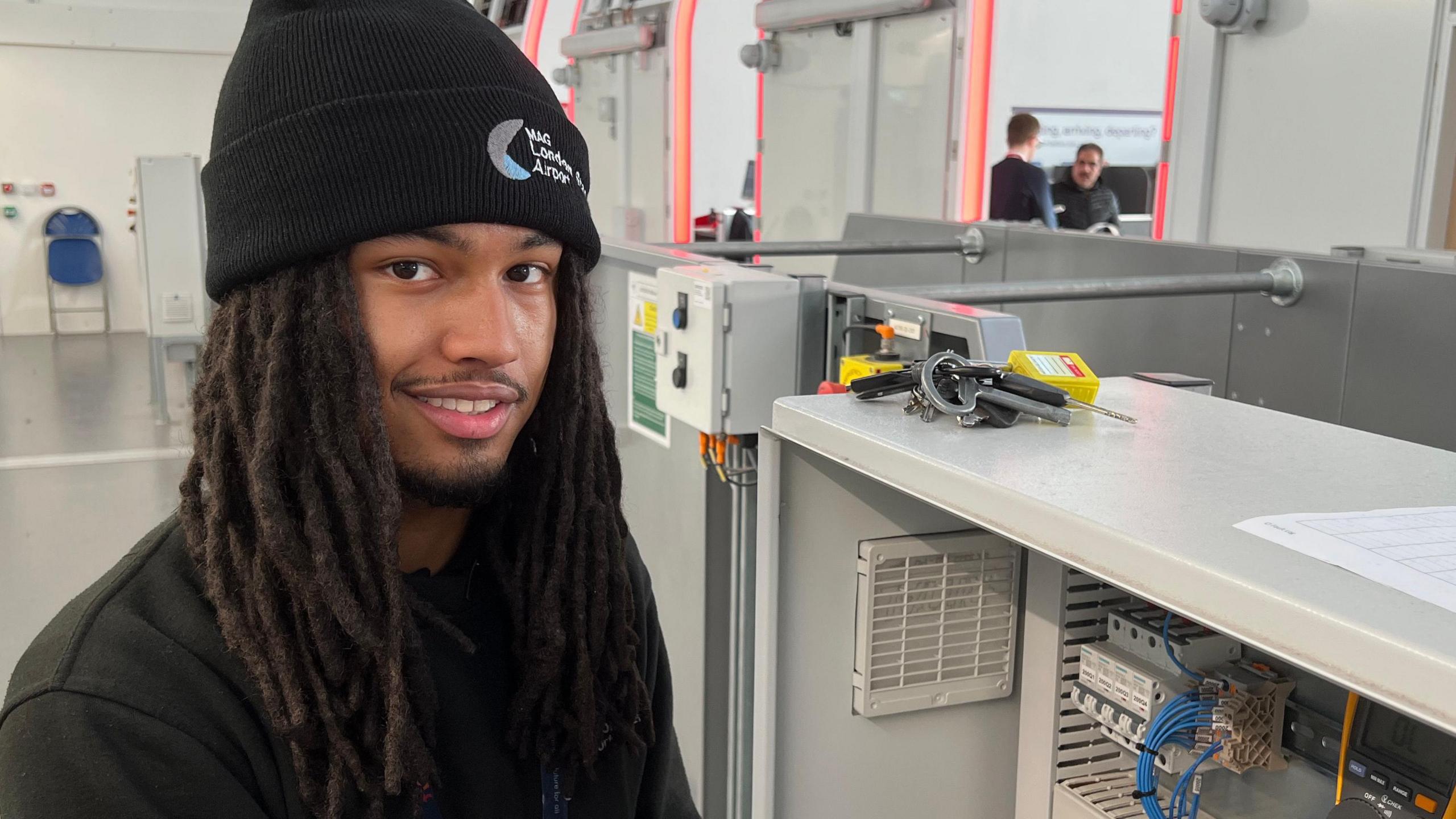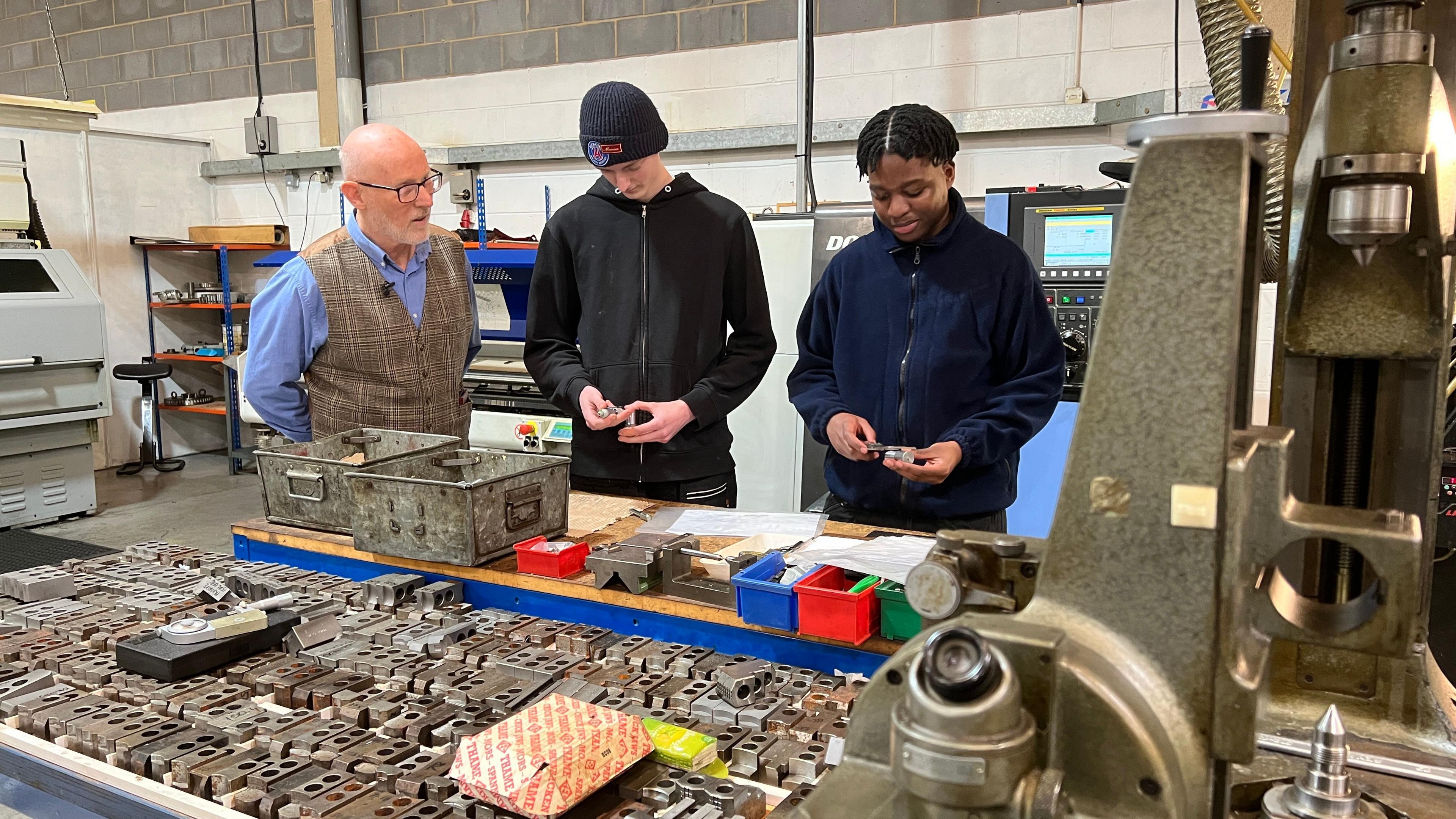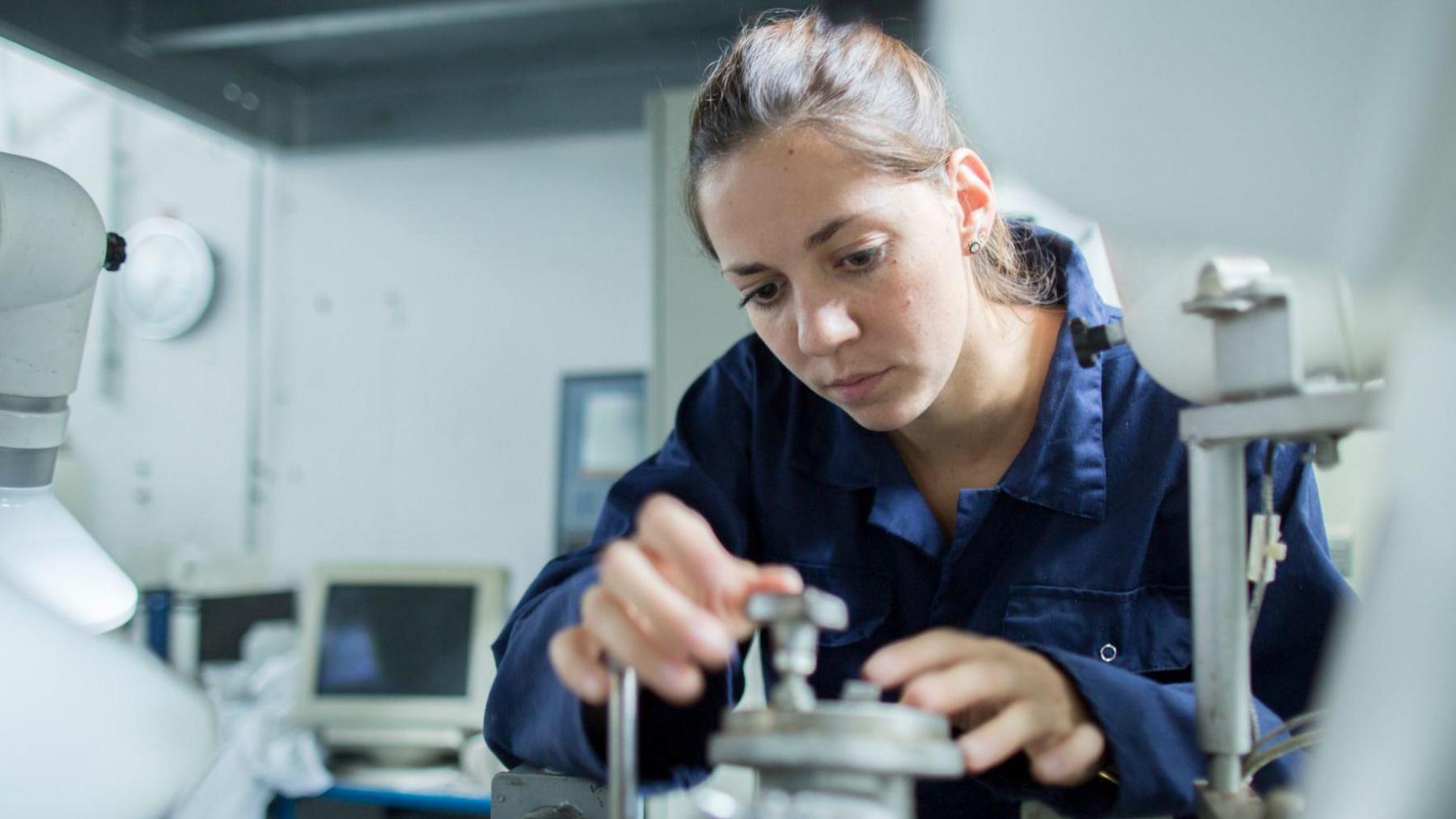Apprentices vital for growth, say Essex businesses

Louis Barklem, 20, hopes to become a full time engineer at Stansted Airport when his apprenticeship finishes in July
- Published
Louis Barklem has just a few months left before he becomes a qualified technician at Stansted Airport.
As an advanced apprentice, the 20-year-old already earns £40,000 a year. The starting salary for an engineering apprentice at the Essex airport is about £22,000.
From July, Louis hopes to get a full-time job maintaining the transit system that ferries passengers between the terminal and departure gates.
"I will be a fully-fledged technician; I will have all the qualifications I need to progress. If one day I want to leave this establishment I will have the necessary paperwork to progress and go higher," he said.

Beard & Fitch managing director Adrian Archer (left) said the apprenticeship system was "very disjointed"
As part of National Apprenticeship Week, external, the BBC has been to the airport just off the M11.
James Baker, airport director, said: "Apprentices are vital. As we grow we have got a huge investment over the next five years of £1.1bn.
"We need to have the right people with the right skills to deliver that growth."
As the UK's fourth busiest airport, Stansted is the biggest employer in any one location in Essex.
There are 12,000 jobs across 200 companies ranging from airlines and catering companies to hotels and aircraft maintenance firms. Many are looking for new people like Louis.
Large employers with a payroll of more than £3m, such as Stansted, pay an apprenticeship levy of 0.5% to the governmnet, but they can use all of the money they are levied to fund apprentices for themselves or another business of their choice. Any of the levy not spent is used by the government to fund other apprenticeships.
Changes 'challenging'
The Labour government is due to reform the system allowing firms to use the re-named growth and skills levy, external to fund shorter apprenticeships and training. The aim is to train more younger people from the levy rather than older workers.
Stansted Airport told the BBC it welcome the changed.
As does the Essex Chambers of Commerce, although its chief executive Denise Rossiter said it was "challenging for businesses to understand the relevant changes".
"In Essex, over 98% of our businesses are small or medium enterprises, many of which do not contribute to the levy. It is crucial that all flexibilities within the levy are extended to our non-levy employers, many of whom are micro businesses," she said.
That is something the managing director of Harlow gear manufacturer and machinists Beard & Fitch agrees with.
Adrian Archer says the current apprenticeship system is "very disjointed, it doesn't support smaller companies like ourselves"
"We find it very difficult to get the colleges to talk to us and they all promise to come back to us when we get the new cohort in and we hear nothing," he said.
Harlow College said: "We recognise the challenges of recruiting skilled people in engineering. We would be happy to develop work placement programmes to create a pipeline of young talent, which has proved successful with many local employers."
Mr Archer has used recruitment agencies in the past but faced fees of up to £4,000 per apprentice and some have left after a few months.
With 30 staff, Beard & Fitch, a manufacturer that dates back to the 1800s, receives a £1,000 grant per apprentice.
It has an apprentice vacancy and by the summer there will be two as one will have become a full-time technician.
Mr Archer said: "You've got to have skilled people, trained people; it takes time to do that and we have to encourage them into the business."
Get in touch
Do you have a story suggestion for Essex?
Follow Essex news on BBC Sounds, Facebook, external, Instagram, external and X, external.
- Published11 February

- Published11 February

- Published26 November 2024

